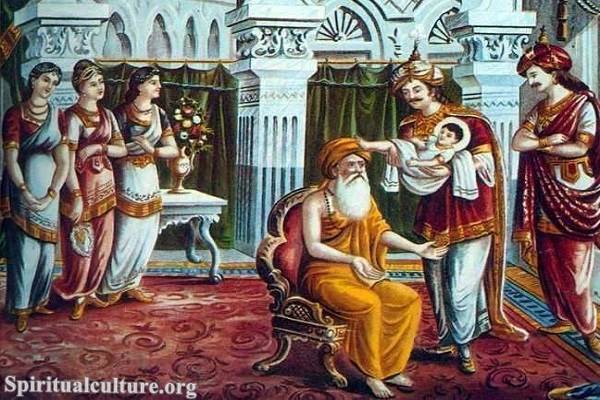We’ve all asked it—some with a tear-stained face, others in silent contemplation: Why do bad things happen to good people? This question pierces the soul, especially when kindness seems to be met not with reward, but with hardship. When the innocent suffer, when the gentle are broken, when light is swallowed by darkness—we search for meaning. We cry out not only in pain, but in protest: This shouldn’t be.
As Spiritual Culture, we invite you to journey with us into this question—not for easy answers, but for deeper understanding. This is not just a philosophical dilemma or theological puzzle. It is a sacred ache, echoing through every tradition, every human heart. In this article, we’ll explore why suffering touches the lives of good people, drawing wisdom from sacred texts, spiritual insights, and the quiet strength of those who endure with grace. Our goal is not to explain away pain—but to help you see it in a new light.
The Question That Won’t Let Go
The Agony of Innocent Suffering
From the loss of a child to the persecution of saints, history is filled with stories where pain and purity meet. The question “why?” isn’t merely intellectual—it’s existential. We feel it most when injustice hits home, when people who love deeply and live rightly encounter heartbreak, illness, or betrayal.
A Cry as Old as Time
In the Bible, Job—a righteous man—suffers the loss of everything. He cries out:
“Why do the wicked live on, growing old and increasing in power?” (Job 21:7)
His words echo the protest of every soul who has watched goodness suffer while evil seems to thrive.
Misconceptions We Carry
The Myth of Moral Karma
It’s tempting to believe in a sort of spiritual cause-and-effect: Do good, and good will come to you. Many religious and cultural systems suggest that actions yield consequences. Yet, this belief can morph into dangerous thinking—implying that suffering people somehow deserve their pain.
When Justice Becomes Transactional
While karma in Hinduism and Buddhism carries profound truths about moral consequence, it is often misunderstood. The pain of a good person is not always a punishment or debt being repaid. Sometimes, suffering enters without warning or justification.
In Christianity, Jesus himself dismantles the idea that suffering is always caused by sin. When asked why a man was born blind, He replies:
“Neither this man nor his parents sinned… but this happened so that the works of God might be displayed in him.”
—John 9:3
Here, suffering is not condemnation—it’s transformation.
The Mystery of Free Will and Brokenness
A World of Choice and Consequence
Many spiritual traditions uphold the reality of free will: that human beings are not puppets but participants in creation. With choice comes risk. When love is real, so is the possibility of betrayal. When freedom exists, so does the potential for harm.
The Ripple of Broken Choices
Some pain comes not from divine will, but from human action—war, greed, neglect. Good people often suffer because others misuse their freedom. God does not orchestrate every tragedy—but He never wastes them.
The Hidden Work of Suffering
Growth in the Fire
Though suffering is bitter, it is not barren. In nearly every tradition, pain becomes a pathway. The desert purifies. The fire refines. The cross precedes the resurrection.
In the Bhagavad Gita, Krishna tells Arjuna in the midst of inner anguish:
“Be steadfast in yoga, O Arjuna. Perform your duty and abandon all attachment to success or failure. Such evenness of mind is called yoga.”
—Bhagavad Gita 2:48
It is this “evenness”—this inner equilibrium through pain—that reveals the soul’s strength.
A Furnace, Not a Curse
Christian mystics often speak of the dark night of the soul—a season of emptiness that draws one closer to divine presence. Teresa of Ávila, who endured immense spiritual dryness, wrote:
“Pain is never permanent.”
In the struggle, the soul expands. Compassion deepens. The heart learns to see.
Jesus and the Ultimate Innocent Suffering
The Cross: Injustice Transformed
No religion confronts innocent suffering more directly than Christianity. At its center is the image of the blameless One—Jesus—enduring torture, mockery, and death. Why?
Because love chose to enter pain.
Jesus does not explain suffering away. He steps into it. He absorbs it. He redeems it.
“He was despised and rejected by mankind, a man of suffering, and familiar with pain.”
—Isaiah 53:3
The cross doesn’t answer every question. But it transforms the question itself. It shows that God is not distant from suffering—He is crucified within it.
Lessons from the Wounded
Those Who’ve Suffered and Still Shine
Some of the kindest, most radiant souls are those who’ve walked through fire. Holocaust survivors who speak of forgiveness. Mothers who’ve lost children and still open their hearts. Saints who smile through scars.
They show us something sacred: that the presence of suffering does not mean the absence of God.
The Story Isn’t Over
Sometimes we judge too soon. What looks like tragedy today may become testimony tomorrow. As Rumi once wrote:
“Don’t get lost in your pain, know that one day your pain will become your cure.”
This is not sentimentalism. It is the wisdom of those who’ve wept and risen again.
Beyond the Question: What Can We Do?
Don’t Look Away
When others suffer, we are often tempted to explain, fix, or flee. But presence is more powerful than explanation. Sometimes the best response is silent solidarity. Sit with them. Listen. Hold their hand.
Be a Wound-Binder
Spiritual traditions call us to be healers—like the Good Samaritan who tends wounds without asking who deserves help. As the Talmud teaches:
“Whoever saves a life, it is as if they have saved the whole world.”
Let Suffering Birth Compassion
If we must suffer, let us suffer with purpose. Let it make us kinder. Softer. More awake to others. This is the alchemy of suffering—it can turn grief into grace.
Reflect and Reimagine
Why do bad things happen to good people?
We may never have a perfect answer. But we are not left without hope.
Suffering is not proof that goodness fails. It is often the stage upon which goodness shines most brightly. The story of the soul is not finished in pain—it deepens there.
In Jesus, we see a God who does not avoid suffering, but redeems it. In the lives of the faithful, we see that light can rise from ashes, and meaning can emerge from sorrow.
So if you are hurting—take heart. You are not alone. Your pain is seen. And though answers may not come, love will.
Spiritual Culture invites you to hold space for the mystery—trusting that even in pain, something sacred is at work.
Let your wounds teach. Let your tears water the garden of compassion. And let your life—even in its brokenness—be a testament to grace.



